When Tardeo's Talmakiwadi cuts its platinum jubilee cake on April 5, it's not just structures, but generations of families that will join in the celebrations
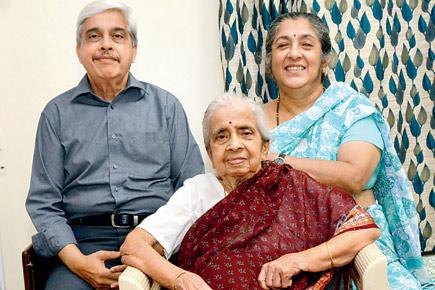
Manorama Pandurang Sashital, who turns 100 today, is hard of hearing and her speech is slightly incoherent. But, when we pass on a hand-written note requesting her to share stories about the wadi, her beady eyes light up. "There was a bimbal (bilimbi in English) tree near Building Number 17. I loved the lonche (pickle) we would prepare from its fruit," she says.
ADVERTISEMENT
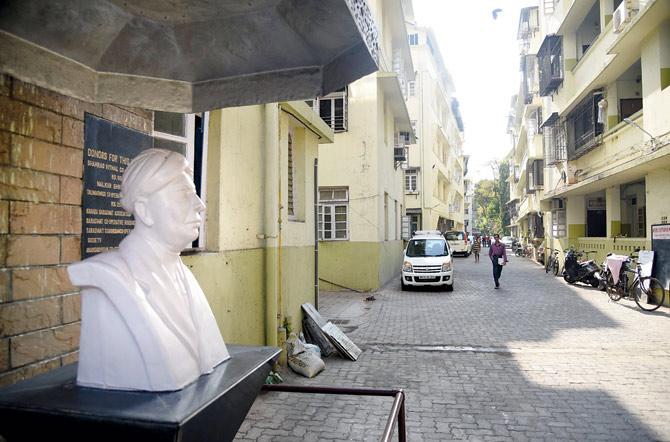
The bust of entrepreneur Rao Bahadur Shripad Subrao Talmaki, after whom the society is named. Talmakiwadi was built to provide affordable housing to members of the Chitrapur Saraswat Brahmin community in 1941. Pics/Sameer Markande
The tree, like Sashital’s memories, still stands. This week, which marks her centenary year, is an important one for Talmakiwadi Co-operative Housing Society as well. One of the city’s oldest co-operative housing societies, it turns 75 years old on Tuesday.
Home for the migrants
Home to the Chitrapur Saraswat Brahmins (CSB) — a community that traces their roots to the Saraswati River in Kashmir and is believed to have migrated from north India to Maharashtra, Goa and Karnataka in the 1800s — the Grant Road society covers 7,175 sq metres and comprises 15 buildings, with 275 tenements. A universe in itself, it has a health centre, garden, school, temple, library, gym and a community hall.

Manorama Pandurang Sashital, 100, resident since 1941
The society’s committee member, 52-year-old Mahesh Kalyanpur says entrepreneur Rao Bahadur Shripad Subrao Talmaki wanted to provide affordable housing to members of the community. In 1906, he set up The Shamrao Vithal Co-operative Bank Limited to assist needy members of the community with setting up economic enterprises and to encourage savings and creation of funds for financial aid. In fact, to generate funds to set more cooperative housing societies, Talmaki mortgaged Saraswat colony, which he had set up.
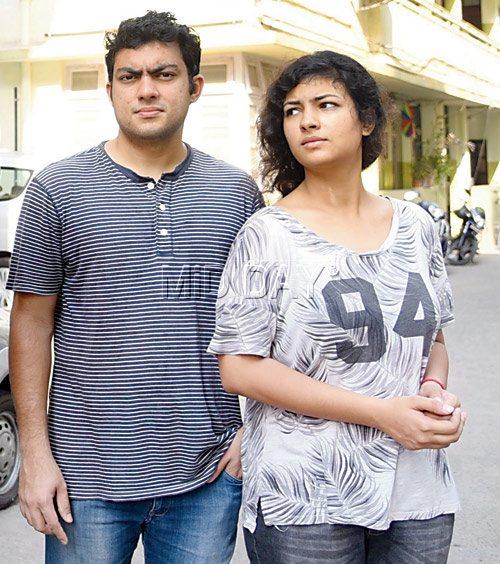
Sanmesh and Sanjana Kalyanpur
"Most of those who moved here were migrants from Kanara district, who typically belonged to the lower middle class and were residing in chawls across the city. Talmaki wanted to set up the colony to help them," says Kalyanpur. In a co-operative housing set-up, the society purchases the land, develops it, constructs houses which it allots it to its members, making homes affordable.
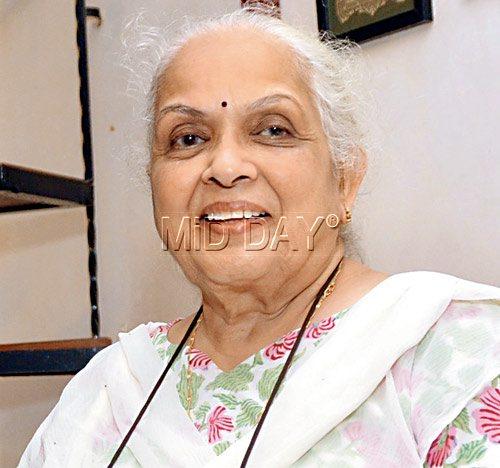
Nirmala Nadkarni, 77, resident since 1946
The land on which Talmakiwadi stands today was a free-hold estate known as Dubashwadi and purchased for R2,32,000 by The Saraswat Co-operative Housing Society Ltd.
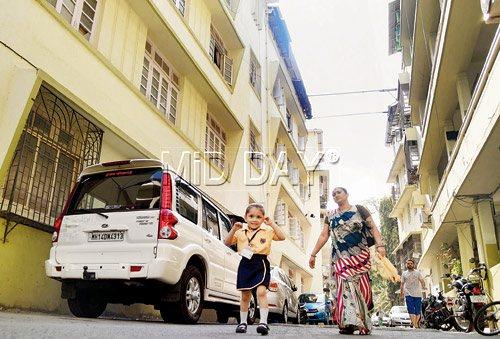
Nirmala Nadkarni, 77, resident since 1946.
But, Talmakiwadi, says Kalyanpur — whose parents were first generation residents — was an idea bigger than just affordable homes.
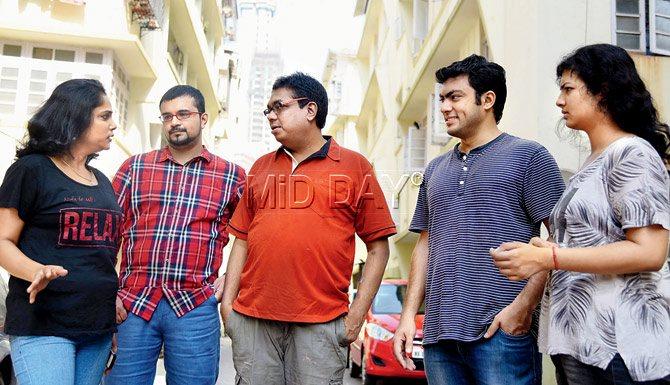
Young residents Tulsi Manjeshwar, Aseem Hattangadi, Samiir Halady, Sanmesh Kalyanpur with sister Sanjana have set up a Facebook Page and Whatsapp group dedicated to the celebrations
"The houses have been designed to promote a sense of community. There’s a door between adjoining tenements to ensure that the size of the house is not a constraint during family functions. When lots of relatives come to visit, the interconnecting doors can be opened to provide more space. It’s like one big family," says Kalyanpur, who works for a non-banking financial company (NBFC).
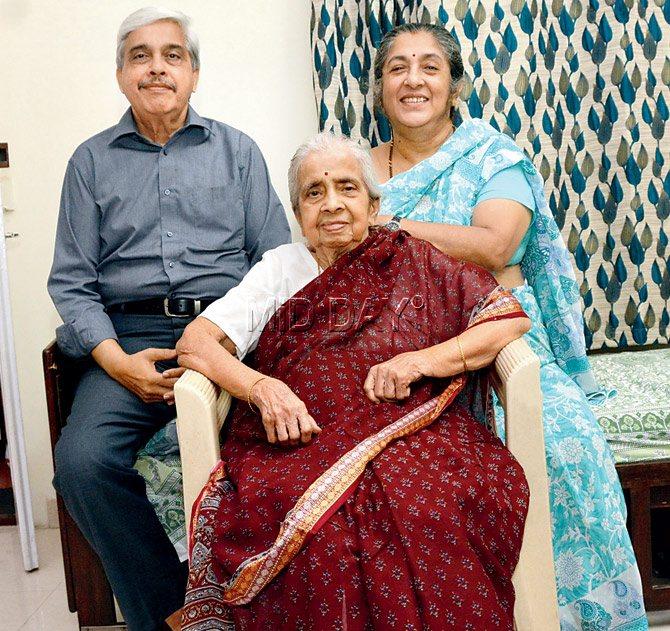
At 100, Manorama Pandurang Sashital (centre) is the colony’s oldest resident. The centenarian, who played the dilruba for AIR, has even got a mention in the Kanara Saraswat, a community magazine. Pic/Sayyed Sameer Abedi
Even the spatial configuration — a common balcony and buildings facing each other with large windows — ensures greater social interaction.lyanpur recollects a senior resident, known fondly as Manjeshwarmam (‘mam’ means uncle), announcing from below each building if the milkman had taken the day off, and then requesting others to collecte their packets from the gate. Even now, before major functions — be it during Gokulashtami bhajans or Diwali dance shows — a volunteer goes around ringing a bell to notify residents that the function will begin shortly.
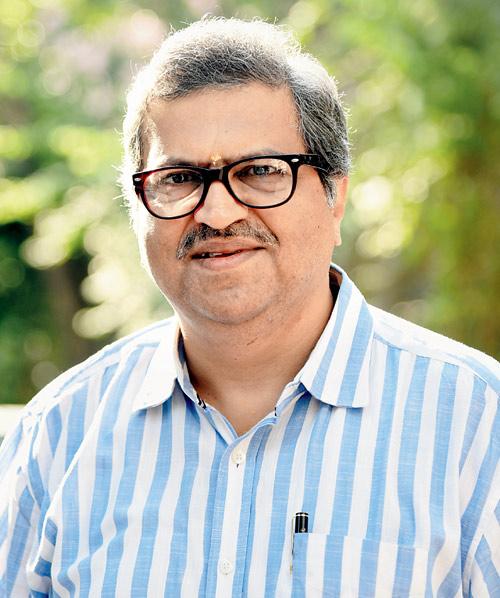
Mahesh Kalyanpur
Samiir Halady, an online marketing consultant who has been living in the wadi for 43 years, credits involvement in community activities for his management skills. Now, to start off the platinum jubilee celebrations in the colony (to be held between April 8 and 10), Halady has created a Facebook page and WhatsApp group. "The group has been buzzing with activity with amchis [term used to describe the community] from the wadi and outside."
While April 8 will see panchang vachan and prayers, followed by a talent show. A fete will be held at Sirur Square followed by a jam session in the hall on Saturday. On Sunday, a comic Konkani Play, Golmal 4, will be staged, followed by dinner.
Talmakiwadi also includes the juni chawl, a 150-year-old settlement that was purchased along with the plot in 1936. The society is the landlord to the 20 tenements that occupy the chawl. Nirmala Nadkarni, who has been living here since 1944, says that the fact that all residents shared a common language helped foster better cohesion.
Open gates
Not all residents are amchis. Over the years, many members have given up their homes up for rent to members of other communities. Language, however, hasn’t been a barrier for the eight non-Saraswat families that live here.
"There has not been a ‘they’ or ‘us’. The people are warm, helpful and non-interfering," says Nirav Shah, who has been staying in the colony for 15 years with his wife Medha and daughter Krutika. Medha, says the stock broker, knows everybody and has even picked up Konkani words and recipes.
And for those who have moved out, like Ajeet Bhat, the wadi is a place you keep coming back to. "The easygoing camaraderie and absence of pretence and political correctness is refreshing and irreplaceable. Everyone’s virtues and vices are well known," says the cinematographer who was born in the wadi and spent his childhood years and many vacations here.
"I was welcomed with open arms after a gap of almost 25 years as if there had never been any time lost at all. My dad grew up here and says he won’t sell the house as long as he lives. I won’t either," says Bhat.
 Subscribe today by clicking the link and stay updated with the latest news!" Click here!
Subscribe today by clicking the link and stay updated with the latest news!" Click here!








